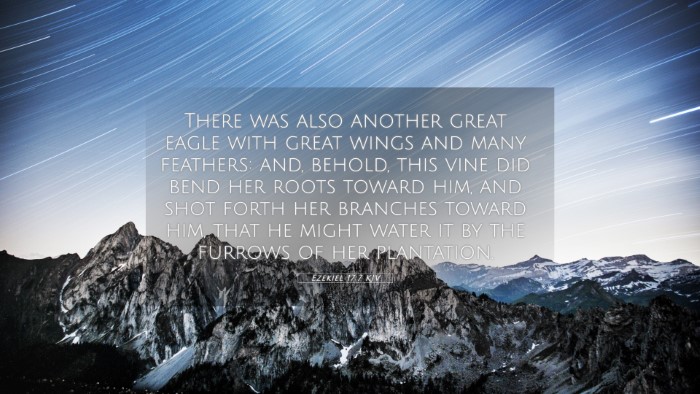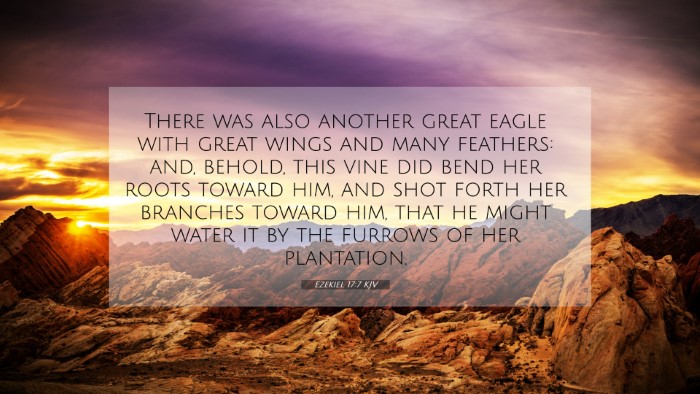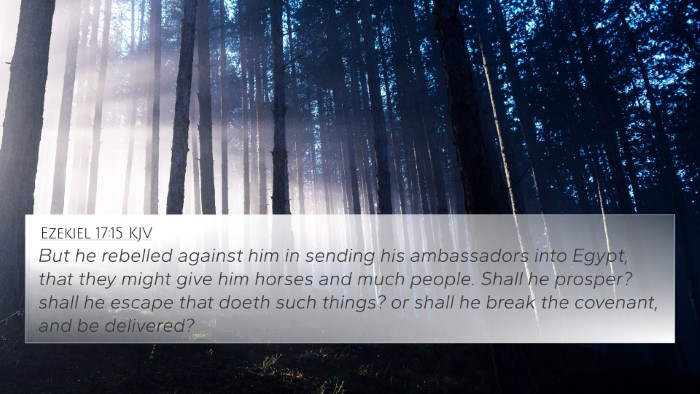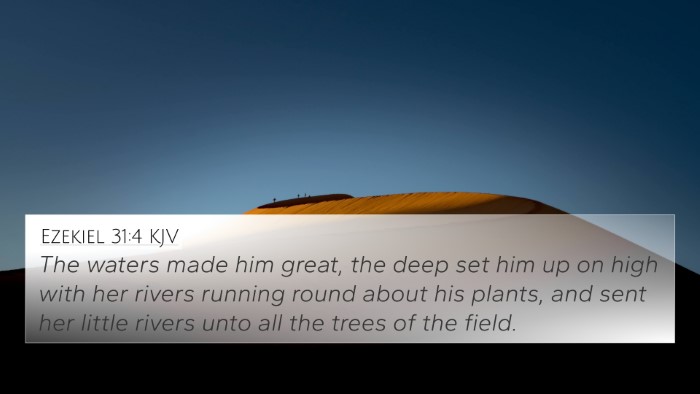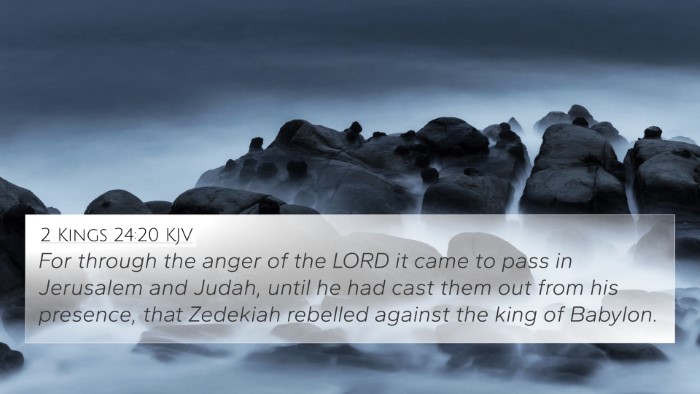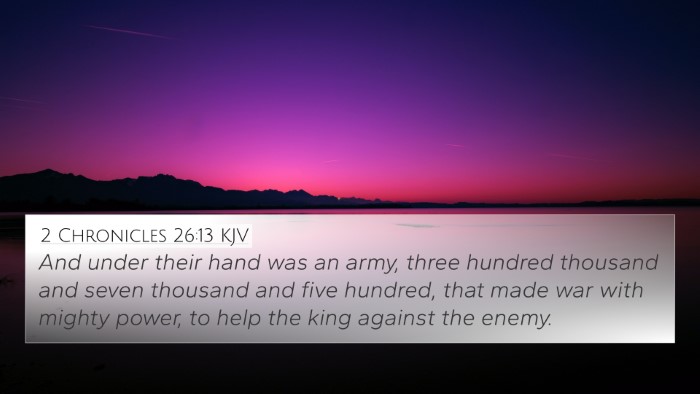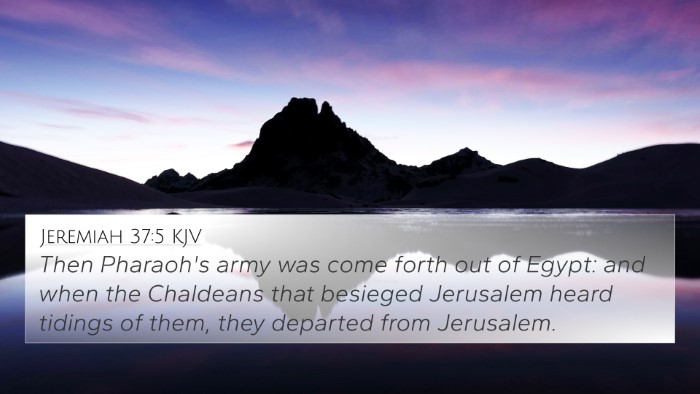Ezekiel 17:7 Interpretation and Insights
Ezekiel 17:7 states: "And there was another great eagle with big wings and many feathers; and behold, this vine did bend her roots toward him, and shot forth her branches toward him, that he might water it by the furrows of his plantation." This verse evokes rich imagery and significant theological themes that warrant deep exploration.
Overview of the Verse
The verse presents a metaphorical narrative involving a vine and two great eagles, symbolizing political powers. This imagery is representative of the choices made by Israel and their consequences, illustrating the fate of the people due to their alliances and faithfulness to God.
Historical Context
This portion of Ezekiel is set during a time when Judah was torn between loyalty to Babylon, represented by the first eagle, and Egypt, symbolized by the second eagle. The verse illustrates how the people were prone to seek security in foreign alliances, rather than relying on the sovereignty of God.
Insights from Commentators
Matthew Henry comments on the folly of the vine, representing Israel, for bending towards an outward help instead of seeking the nourishment from God. He emphasizes that this action demonstrates a lack of faith.
Albert Barnes details that the two eagles represent the powerful nations, highlighting how the vine's inclination towards Egypt reveals the heart's inclination towards worldly security rather than divine trust. He notes that such alliances are ultimately futile.
Adam Clarke elaborates further by indicating that the vine’s desire to be watered by the second eagle signifies the spiritual decline of Israel, showing their disregard for the might of Yahweh and their desperation for human alliances.
Thematic Connections
This verse aligns with several key biblical themes:
- The Importance of Trusting God: The tendency of Israel to seek help from foreign nations serves as a reminder of the need for faith in God, akin to verses like Isaiah 31:1, which warns against reliance on Egypt.
- The Consequences of Disobedience: These themes link to Jeremiah 17:5, where the prophet speaks of the curse on those who trust in flesh rather than God.
- God’s Sovereignty: This verse can also be connected to Psalms 146:3-5, cautioning against placing trust in princes or human leaders.
Bible Verse Cross-References
Here are cross-references that provide a broader understanding of the themes presented in Ezekiel 17:7:
- Ezekiel 17:3 - Introduction to the metaphor of the vine.
- Jeremiah 17:5 - A reminder of the curse of reliance on man.
- Isaiah 31:1 - Advice against seeking help from Egypt.
- Psalms 146:3-5 - A call to trust in God, not human leaders.
- Proverbs 3:5-6 - Encourage leaning not on one's understanding.
- Hosea 14:3 - Reliance on God for healing rather than idols.
- Matthew 6:24 - The principle of serving only one master.
Connections Between Bible Verses
The interconnectedness of scripture can be seen in how Ezekiel's warning resonates with numerous other themes in both the Old and New Testaments. The importance of identifying these connections enables deeper understanding and encourages comparative Bible verse analysis.
Conclusion
In summary, Ezekiel 17:7 is a profound commentary on the spiritual state of Israel, their choices, and the repercussions that ensue from seeking human wisdom over divine guidance. The insights derived from prominent commentators and the scripture's rich imagery call for believers to reflect on their own reliance and trust in God amidst worldly temptations.

